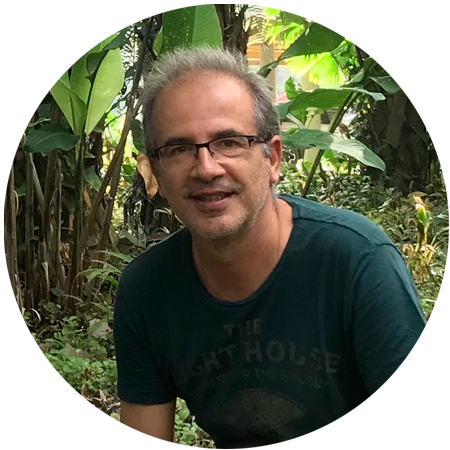
Jesús Mercado Blanco
Co-Leader of Microbiology of Agroforestry Ecosystems (MAE) group
Graduate (1987) and PhD (1993) (both with Extraordinary Mention) in Biological Sciences by the University of Granada (Spain). His doctoral research, focused on plasmid biology of Rhizobiaceae members, was conducted at the “Estación Experimental del Zaidín” (EEZ-CSIC, Granada, Spain). Postdoctoral fellow (1993-1997) at Utrecht University (Utrecht, The Netherlands) supported by grants of the Spanish government and the European Union (HCM program). During this period his research focused on the characterization of genes involved in siderophore production by Pseudomonas spp. Postdoctoral fellow (1997-2001), ‘Ramón y Cajal’ fellow (2002-2006), “Científico Titular” (Tenured Scientist) (2006-2017), and “Investigador Científico (Research Scientist) (2017-2022) at the Institute for Sustainable Agriculture (IAS-CSIC, Córdoba, Spain). Head of the Crop Protection Department of IAS-CSIC (2020-2022). Since 2021 is serving as convenor of the Working Group (WP) “Integrated Protection of Olive Crops» of the International Organization for Biological and Integrated Control (IOBC) (https://www.iobc-wprs.org/expert_groups/15_wg_olive_crops.html)
Spanish representative in the Management Committee of the COST Action FP1305 “Linking belowground biodiversity and ecosystem function in European forests (BioLink)”. His research is mainly focused on microbiology, agro-biotechnology, plant-microorganism interactions, and the development of control tools within integrated management strategies of soil-borne diseases affecting crops relevant for the Mediterranean area, using Verticillium wilt of olive a study system. Fusarium wilt of banana is also an important target under investigation. The identification, characterization and use of biological control agents (BCA) constitute one of his main research lines. Specific research topics are, among others: 1) the elucidation of the molecular bases underlying interactions involving BCAs, soil-borne phytopathogens and host plants by molecular and ‘-omics’ approaches; 2) the characterization and utilization of beneficial bacterial endophytes; 3) the analysis of the genetic and molecular diversity of rhizosphere/soil/plant microorganisms; and 4) the qualitative and quantitative molecular detection of soil-borne fungal pathogens.


